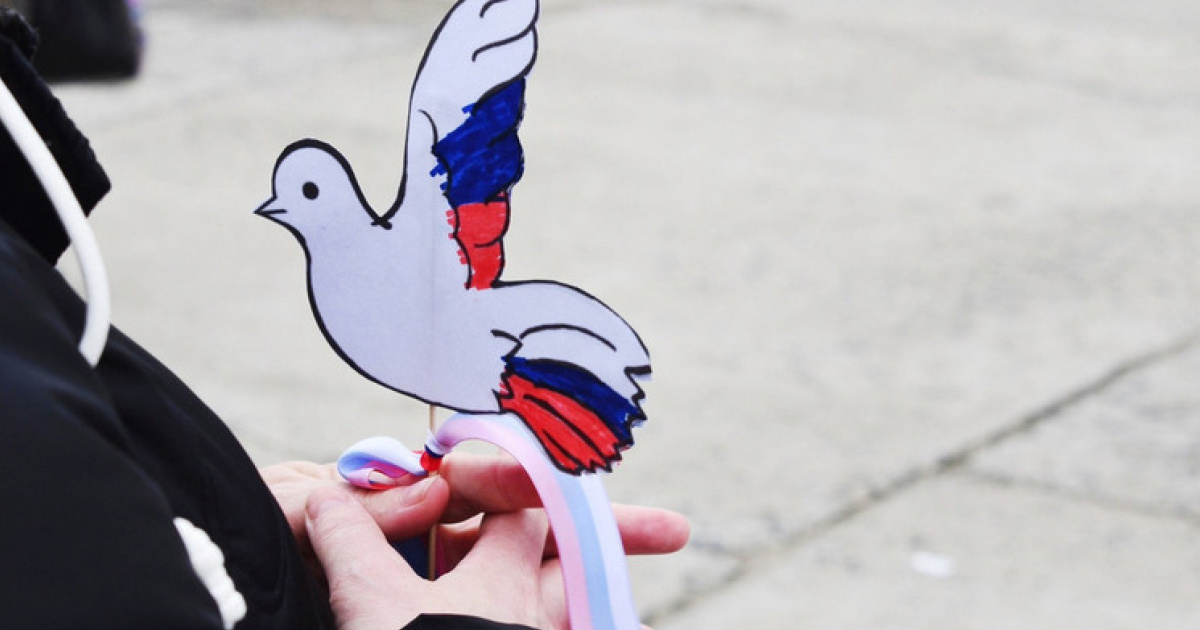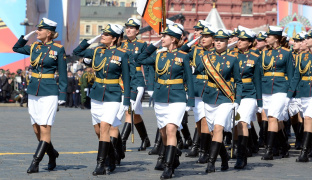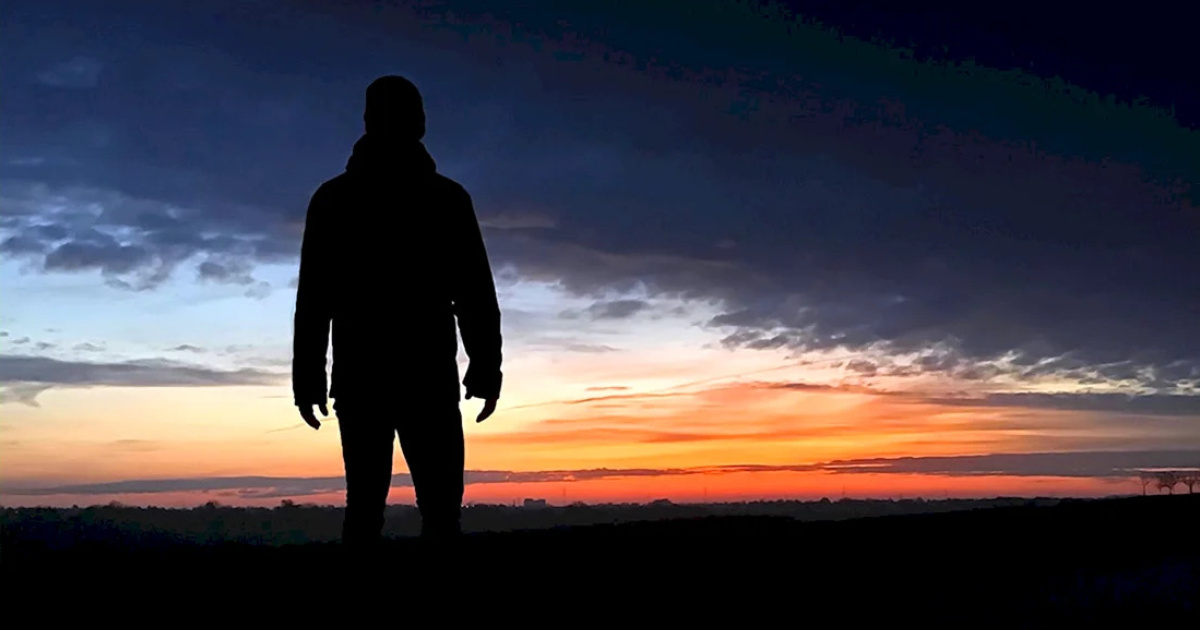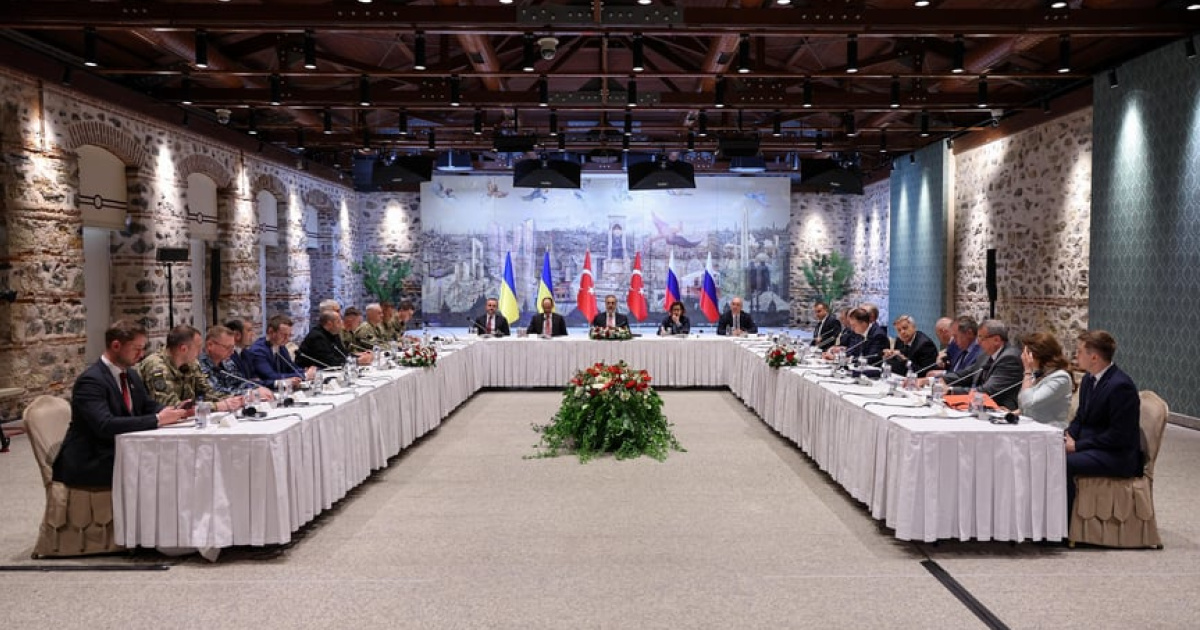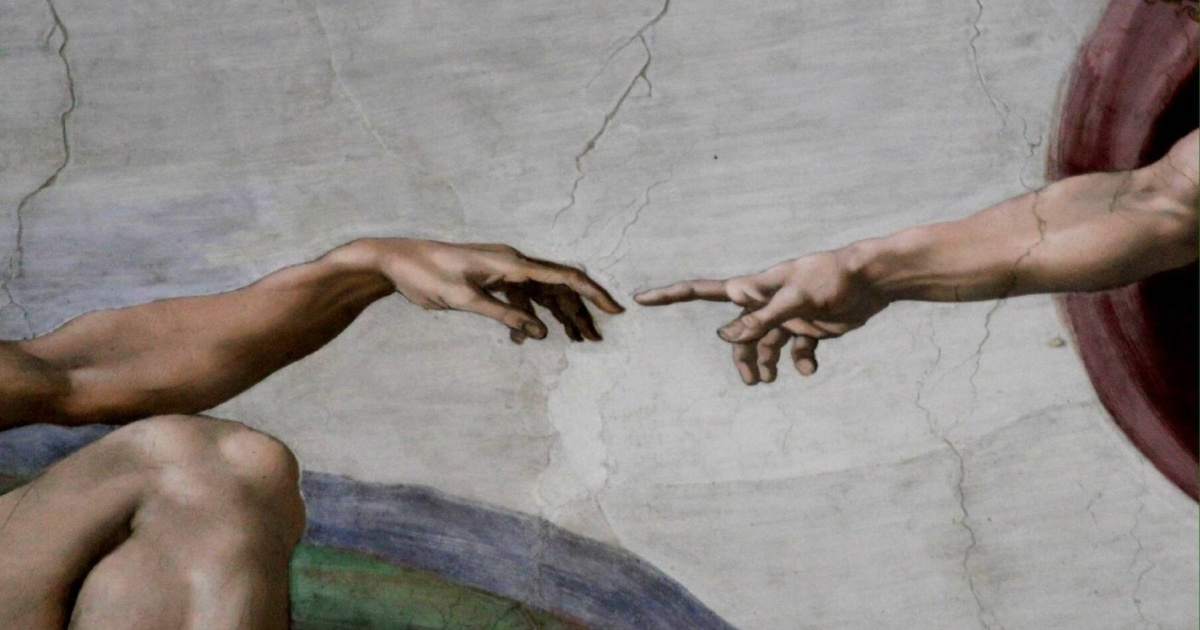… Well-known Ukrainian businessman from Donetsk Pavlo Klymets was detained in Moscow on April 27, 2019, and then was taken to a pre-trial detention center. Klymets was charged with suspicion of giving a bribe of particularly large sums of money in the Investigative Committee of the Russian Federation. Since then, Klymets has remained in custody, and his detention and arrest have marked a decisive end to the issue of "loyalty" of the Russian authorities to representatives of the so-called "Donetsk business". The arrest of Pavlo Klymets turned out to be a kind of "black mark" for those who still cherished the hope of dealing with Russia.
No man - no problem
With the beginning of annexation of the Crimea and Russian occupation of parts of Donbass in 2014, Ukrainian businessmen and politicians related to the coal region cautiously spoke out about Russia's role in the events in the South-East and on the subject of "whose the Crimea is".
This was understandable - many of the businessmen and politicians with a Donetsk and Luhansk residence permit had close business ties with the Russian Federation and real estate in the Crimea. They did not want to interrupt the "food chains" that had been developed over decades.
Some of them moved to the territory controlled by Ukraine, having left their "watchers" in the so-called "republics" and trying to slip "between the droplets".
Some of them, who did not have a roof among the militants or in Russia, lost everything immediately.
Others decided to squeeze into the "schemes" on the territory of the so-called "DNR" and "LNR", in the annexed Crimea, and then in Russia. Such people tried to "warm themselves up" on the situation, not realizing that they were already "on notice" of citizens with the Chekist hearts, who themselves had their eyes on the "orphaned" financial flows…
Actually, the aforementioned Pavlo Klymets, who is also the "vodka king", owner of the Olymp group of companies, ex-deputy of the Verkhovna Rada from the Party of Regions, etc. - was just the one who tried to continue doing business in Russia and in the territories of Ukraine occupied by it.
He said in a few interviews that he had lost about 40% of his assets as a result of the Crimea annexation and military operations in the Donbass. However, according to the sources, Klymets still tried to do business in the "uncontrolled territories", and the Olymp vodka was safely produced in occupied Donetsk and was supplied both to Ukraine and Russia.
However, Klymets became the "insider" neither in the "DNR" nor in Russia. His assets became the object of desire for a new "power" in Donetsk, and in Russia, several of his factories in the Voronezh oblast began to annoy competitors with a Russian residence permit.
As a result, the businessman was lured to Moscow to resolve the issue of his assistant, who was allegedly detained in Russia, and since then, the fate of both Pavlo Klymets and his assets has been shrouded in mystery…
The fate of another citizen with a Donetsk residence permit Mykhaylo Liashko is no less indicative. Liashko played cards with Akhmetov's forerunner, Akhat Bragin, and was in the criminal business world of Donbass, in fact, like Rinat Akhmetov in legal business. Liashko was assigned the control over the gaming business and smuggling of cigarettes and alcohol, including to Europe.
With the advent of the Russian world, he decided to continue his activities. However, at some point, someone decided that a change of elites in the Donbass should occur not only in the legal business, but also in its underworld… Mykhaylo Liashko was shot dead in the territory of the Crimea annexed by Russia in the house where he lived on December 22, 2015.
The fate of IUD and Kurchenko's curators
Former billionaire and now people's deputy from Batkivshchyna Serhiy Taruta, probably, regretted many times that he did not act with his assets like his former partner in Industrial Union of Donbass Vitaliy Haiduk. He sold his stake to the Russian investors in 2011 in the person of third co-owner of IUD Oleh Mkrtchan and began to mine diamonds in Africa.
Taruta remained in IUD after the departure of Haiduk, his relationship with the aforementioned Oleh Mkrtchan, who supported annexation of the Crimea and the "referendums" in the Donbass, went wrong in 2014.
The Alchevsk Iron and Steel Works, one of Taruta's main assets in the Donbass appeared to be under the militants' control, then Oleh Mkrtchan actually deprived Taruta of his assets and property in the Crimea, Russia and the occupied territories of Donbass with the help of other Russian "partners".
However, a criminal case was instituted against Mkrtchan in Russia later – he was charged with embezzlement of 199 billion rubles and was sent to serve a nine-year term in a penal colony.
At the same time, all assets of IUD that Mkrtchan grabbed from Taruta were already taken from Mkrtchan by runaway Ukrainian businessman Serhiy Kurchenko, in fact, by his curators from Lubianka, who now manage all the goods of the once powerful Industrial Union of Donbass Corporation.
By the way, Haiduk, Taruta and Mkrtchan are now suing each other in London for the IUD shares. experts say that Vitaliy Haiduk has a chance to win some of the remaining IUD property in the Ukraine-controlled territory by court action…
Akhmetov's silence
Ex-chairman of the Donetsk regional council and owner of the Konti confectionery company Borys Kolesnikov actively advocated Ukrainian business to invest in Russia during the first Russian trade wars with Ukraine under Yushchenko. What, in fact, he did himself by launching multi-million capacities in the Kursk oblast. This was to diversify the risks from trade wars. But the unexpected happened – a real war with the occupation, guns and evacuation, and now the former Minister of Infrastructure of Ukraine would probably take his words back. Although, by the way, Kolesnikov replied affirmatively in response to a question whether he has a business in Russia, having said that it brings some profit, but he did not spread much on this subject…
As well as his friend Rinat Akhmetov, who still expresses his attitude to the events in the Donbass by setting the speedy coming of peace.
As it is known, both Akhmetov and Kolesnikov retained assets in the occupied territories. Some of them were "nationalized" or "transferred to the external management", some were quite legally "leased" to the same Russians.
Judging by the fact that Akhmetov's top team left the Donbass after "nationalization", we can conclude that he really lost control of his assets. The consolation for the former "owner of Donbass", who formally remains the owner of his business, is that the enterprises still work, which means they are not plundered, not damaged technologically and even retain some skilled personnel.
Some enterprises of former First Deputy Prime Minister Andriy Klyuyev, who left Ukraine in 2014 together with his brother Serhiy, put on the wanted list, also work.
Andriy Klyuyev made an attempt recently to run for the Verkhovna Rada in the single-mandate district. In response to the argument that he could not go to the parliament because he had not lived in the country for the past five years, Klyuyev replied using his representative that he had not left Ukraine, and lived in Donetsk all this time. And if anyone says that Donetsk is not Ukraine…
Unlike other Donetsk natives, who relied on Russia, Klyuyev did not bind himself with business ties with the "friendly nation". However, he still suffered in the Crimea - representatives of the new Crimean "government" did not disdain to take the Solar SEGS (Solar Electric Generating Stations) from the former head of the Administration of President Yanukovych. This forced the Klyuev brothers to think well about the question of where to keep money and "deal with the matters", therefore, a peaceful and quiet Austria was chosen for these purposes…
"Cocky" Arbuzov and nostalgic Klymenko
By the way, former head of the National Bank and first deputy prime minister of the late Yanukovych times Serhiy Arbuzov blossomed too. Having "hang out" in Moscow, he quickly realized that he would not be allowed to conduct business in the "first capital city". Moreover, due to conflicts arising from the division of assets with Oleksandr Yanukovych, there was a threat to repeat the fate of Mkrtchan. Therefore, Arbuzov acted cleverly – given that when he was head of the National Bank and deputy prime minister, he managed to become a minority shareholder in many Ukrainian enterprises, take loans from foreign banks and engage in retail all over the world, in particular, in Latin America.
However, his colleague in the Cabinet of Ministers of the times of Azarov, ex-Minister of Revenue and Duties Oleksandr Klymenko made the wrong bet. For some reason, he decided that he would be able to return to Ukraine not only as a businessman, but also as a politician after his epic escape and a fight at the Donetsk Airport in February 2014. This was a fatal mistake for him. Having its own media in Ukraine and a number of "charitable" and non-governmental organizations, Klymenko tried to resolve issues not only through the courts (with which we can always agree mutually beneficial), but also by influencing political decisions (in particular, the Donbass ones). This market has too many its own players. So, he was confronted not only with the new "Maidan" power, but also with the "old Donetsk natives", who hate the young oligarchs of the "Family". Therefore, now virtually all of the property of Oleksandr Klymenko in Ukraine is under distraint… Oleksandr Klymenko failed to gain a foothold in Russian business too. Not least because of conflicts with the same Oleksandr Yanukovych, who believes that all the "young oligarchs" owe him something, while they themselves do not think so…
Head of the Cabinet of Ministers under Yanukovych Mykola Azarov, who distanced himself from the "Family", feels himself in Russia not very comfortable, but tolerably. As Mr. Azarov said in a recent interview with Dmytro Hordon, it was hard for him to live in Moscow, and he wanted to return to Kyiv. According to him, he "formalized" his presence in the Russian Federation through Putin himself, who granted him a "refugee" status.
Since then, he has been earning a living… by literature, and even received a fee for writing the script for the series. Given the known to all level of his word proficiency, we can assume that the series was humorous…
Well, the most mysterious character in this panopticon is Oleksandr Yanukovych, better known in Ukraine under the nickname "Dentist". After his flight to Russia following his father in 2014, there were many rumors about his business activities. In particular, people said that he retained control over the coal schemes in Donbass, but there was no confirmation of this information. He was even recorded in the "partners" of the main supplier of the energy carriers to the occupied Donbass – young oligarch Kurchenko. But, given that Kurchenko's figure is not independent, but works for the FSB, it is unclear why the generals from Lubianka should share with the son of the has been Yanukovych…
From time to time, information that Oleksandr Yanukovych had visited Donetsk appeared, but all this was only at the rumor level.
In mid-2014, the Russian Delovoy Peterburg media published an article stating that Oleksandr Yanukovych was beginning to engage in large-scale construction projects in St. Petersburg. In particular, the media mentioned that the son of the runaway Ukrainian president would build up the Arsenalnaya embankment in St. Petersburg. However, a little later, Yanukovych himself gave a somewhat strange interview about the fact that he was not building up the Arsenalnaya embankment, but only eyeing the northern capital of Russia, and if to work there, then with low-key and small objects.
As a result, the traces of the global construction business of Oleksandr Yanukovych in Russia were not found. Although it is known that he nevertheless registered an enterprise there, however, the products of his activities were not reported anywhere in open sources. Most likely, if Yanukovych's son had large-scale plans for building in St. Petersburg, some of the locals did not like these plans, and they simply did not let the foreign rich boy in the market.
Serhiy Kuzin, OstroV
